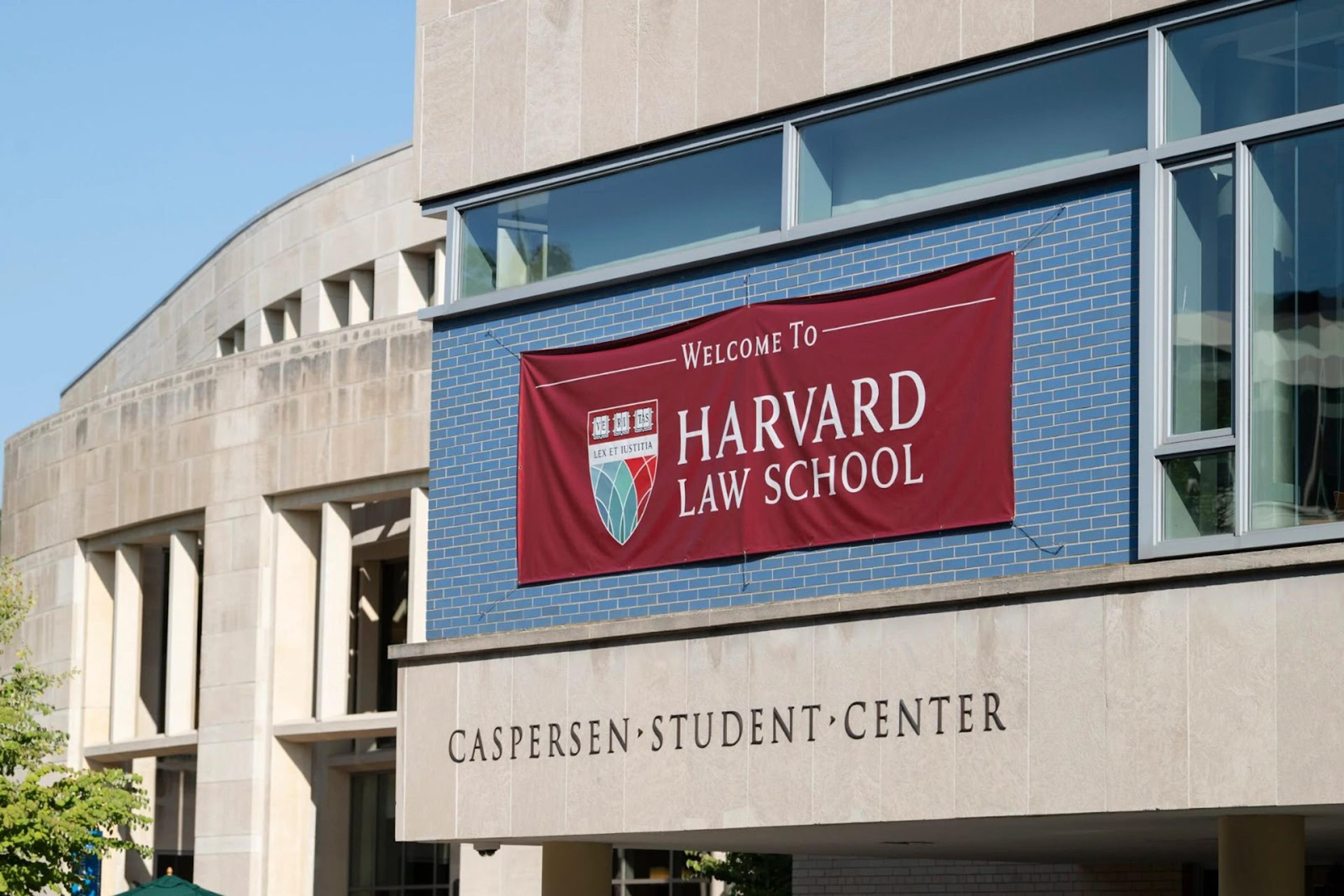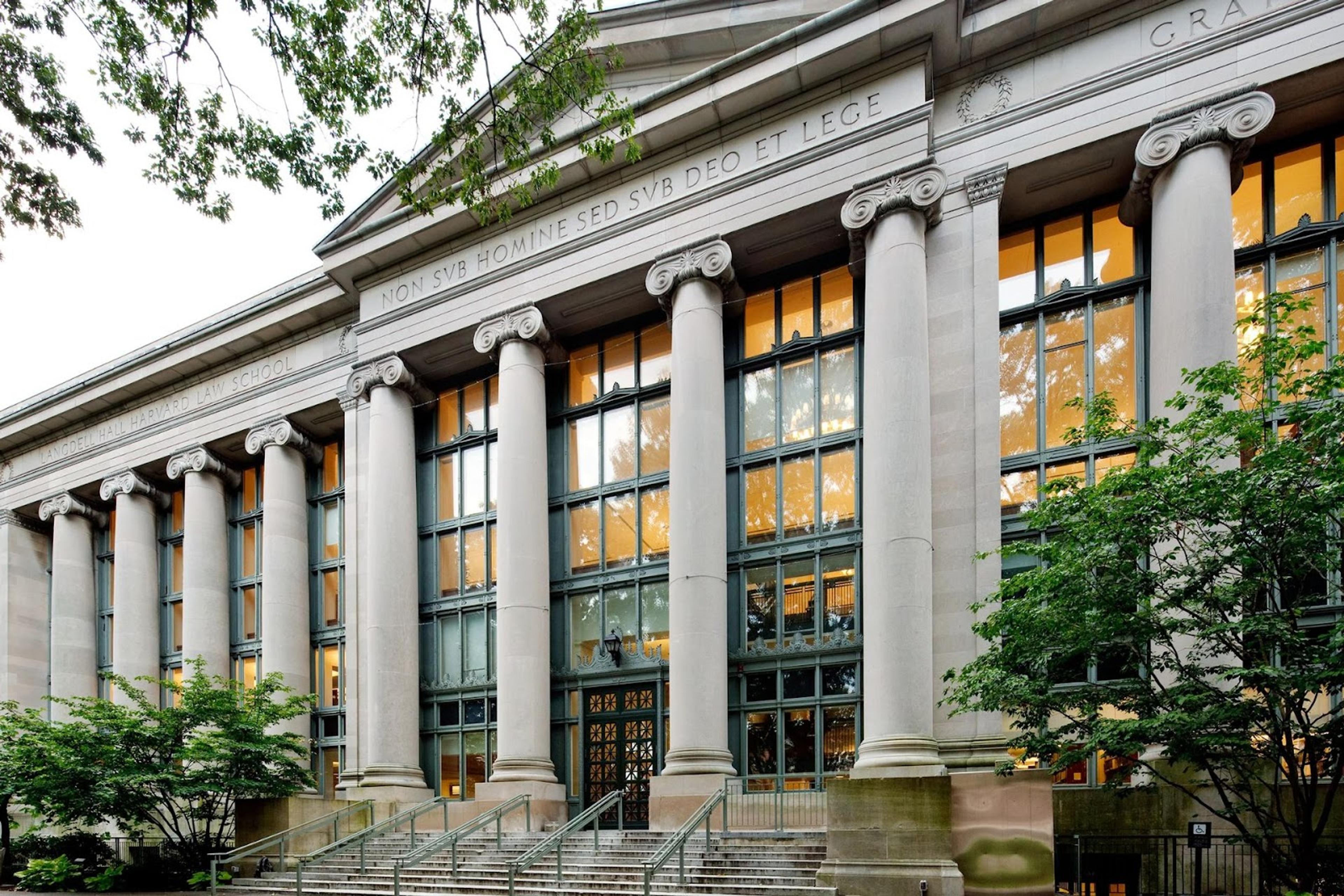Harvard Law School: Program and Application Overview
Discover everything you need to know about the Harvard Law School program and application process.
Posted June 13, 2025

Join a free event
Learn from top coaches and industry experts in live, interactive sessions you can join for free.
Table of Contents
When it comes to law school, Harvard is often the first name that comes to mind. Founded in 1817, it's the oldest continuously operating law school in the United States and one of the most prestigious in the world. In this article, we'll provide a comprehensive overview of Harvard Law School, discussing everything from its rich history and rigorous admissions process to its curriculum and career opportunities. Whether you're considering applying to Harvard Law or simply curious about what it offers, keep reading to learn more.
The History of Harvard Law School: A Brief Overview
The idea for a law school at Harvard University can be traced back to 1815, when Justice James Kent of the New York Supreme Court suggested the idea to Harvard President John T. Kirkland. The law school officially opened in 1817, with a curriculum that was modeled after the law program at the University of Cambridge in England. Since then, the school has grown to become one of the most influential and respected legal institutions in the world. Its alumni include eight U.S. presidents, dozens of Supreme Court justices and ambassadors, and countless other leaders in law, government, and business.
Throughout its history, Harvard Law School has been at the forefront of legal education and scholarship. In the late 19th and early 20th centuries, the school played a key role in the development of the case method of legal instruction, which emphasized the study of judicial opinions and their underlying principles. Today, the school continues to innovate in legal education, with programs such as the Harvard Legal Aid Bureau, which provides free legal services to low-income clients, and the Harvard Negotiation and Mediation Clinical Program, which trains students in alternative dispute resolution.
Harvard Law School has also been a leader in legal research and scholarship. The school's faculty includes some of the most prominent legal scholars in the world, and its library is one of the largest and most comprehensive law libraries in the United States. In recent years, the school has been at the forefront of research on topics such as intellectual property law, international law, and constitutional law.
The Prestige of Harvard Law School: Why It Matters
The reputation of Harvard Law School is one of its most appealing features. Not only does it attract some of the brightest and most ambitious students from around the world, but it also opens doors to an impressive array of career opportunities. Employers across a wide range of industries recognize Harvard Law graduates for their exceptional intellect, analytical skills, and ethical standards. Whether you're planning to launch your own law practice or work for a top law firm, a degree from Harvard Law School can help you achieve your goals.
Furthermore, Harvard Law School offers a unique and diverse community of students and faculty. With a student body representing over 70 countries and a faculty that includes leading scholars and practitioners in various fields of law, Harvard Law School provides a rich and stimulating environment for learning and growth. The school also offers numerous opportunities for students to engage in research, pro bono work, and extracurricular activities that can enhance their legal education and professional development.
What Makes Harvard Law School Stand Out from Other Law Schools?
There are many factors that set Harvard Law School apart from other law schools. For one, its faculty is composed of some of the most accomplished legal scholars and practitioners in the world. It also offers a wide range of programs and initiatives that allow students to dive deep into specific areas of law, from intellectual property to human rights. Additionally, Harvard Law School is located in Cambridge, Massachusetts, which is home to a large legal community and offers abundant opportunities for networking, internships, and career development.
Another factor that sets Harvard Law School apart is its commitment to public service. The school has a strong tradition of producing lawyers who go on to work in public interest law, government, and non-profit organizations. Harvard Law School also offers a number of clinics and pro bono opportunities for students to gain hands-on experience in serving the community.
Furthermore, Harvard Law School has a diverse student body, with students from all over the world and from a variety of backgrounds. This creates a rich and dynamic learning environment, where students can learn from each other's experiences and perspectives. The school also offers a number of student organizations and events that celebrate diversity and promote inclusivity.
The Admissions Process at Harvard Law School: Everything You Need to Know
Applying to Harvard Law School is a competitive and time-consuming process that requires careful planning and attention to detail. To start, all applicants must register with the Law School Admission Council and take the Law School Admission Test (LSAT). They must also submit a personal statement, letters of recommendation, and transcripts from all undergraduate and graduate institutions attended. The admissions committee evaluates each application holistically, taking into account factors such as academic achievements, professional and extracurricular experiences, diversity, and overall fit with the school's values and mission.
Tips for Writing a Winning Personal Statement for Your Harvard Law School Application
One of the most important components of any law school application is the personal statement. This is your chance to showcase your personality, experiences, and aspirations in a way that is both engaging and persuasive. To write a winning personal statement for Harvard Law School, be sure to do your research about the school's mission and values, demonstrate your passion for the law, and be specific about your goals and how they align with your background and experience. Also, make sure to proofread and edit your statement carefully to ensure that it is clear, concise, and polished.
What Harvard Law School Looks for in Applicants: The Admissions Criteria Explained
As we mentioned earlier, Harvard Law School evaluates each application holistically, taking into account a wide range of factors beyond grades and test scores. Some of the key qualities that the admissions committee looks for include intellectual curiosity, leadership potential, a commitment to public service, and a diverse set of perspectives and experiences. Strong applicants also have a clear sense of their career goals and how a degree from Harvard Law School will help them achieve those goals.
How to Ace the LSAT and Boost Your Chances of Getting into Harvard Law School
The LSAT is a challenging exam that takes about four hours to complete and covers logical reasoning, reading comprehension, and analytical reasoning. To ace the LSAT and increase your chances of getting into Harvard Law School, it's important to start preparing early and consistently. This may involve taking a LSAT prep course, studying independently using online resources, and taking practice tests to identify your strengths and weaknesses. Additionally, consider seeking guidance and support from trusted advisors and mentors to help you stay focused and motivated throughout the process.
Financing Your Education at Harvard Law School: Scholarships, Loans, and Other Options
As with most graduate programs, Harvard Law School can be expensive. However, there are many resources available to help make it more affordable. For example, the school offers a range of financial aid programs, including scholarships, grants, and loans. Many students also take advantage of externship programs, where they work for law firms, government agencies, or non-profit organizations while earning credit toward their degree. Additionally, some students may be eligible for loan repayment assistance programs after they graduate.
Life as a Student at Harvard Law School: What to Expect
Studying at Harvard Law School can be an intense and rewarding experience. Students typically spend their first year taking core courses on foundational legal concepts such as torts, contracts, and constitutional law. In the second and third years, students have more flexibility to choose electives and pursue their specific interests. The school also offers many opportunities for extracurricular activities, including moot court competitions, student organizations, and volunteering in legal clinics. Additionally, the school's location near Boston provides access to a wide range of cultural and recreational activities.
The Curriculum and Courses Offered at Harvard Law School: An Overview
The curriculum at Harvard Law School is designed to provide students with both a broad understanding of legal concepts and specialized knowledge in specific areas of law. Some of the popular courses and programs offered at Harvard Law School include intellectual property law, international human rights law, constitutional law, and corporate law. In addition, the school offers many clinical programs and externship opportunities that allow students to work on real-world cases alongside practicing attorneys.
The Benefits of Studying at one of the Top-Ranked Law Schools in the World
Studying at one of the top-ranked law schools like Harvard can provide many benefits. For one, it offers access to a world-class faculty and resources that can help build your legal skills and knowledge. Additionally, it offers excellent networking opportunities that can help you build your career after you graduate. Finally, it can help position you for a wide range of career opportunities, from working for top law firms to pursuing public service careers in government or non-profit organizations.
Career Opportunities for Graduates of Harvard Law School: Where They Go and What They Do
Harvard Law School graduates are highly sought after in the legal industry and beyond. Many go on to work for top law firms, while others pursue careers in government, public interest law, or academia. Some graduates also choose to start their own law firms or pursue entrepreneurial ventures. Regardless of their career path, Harvard Law School graduates are known for their exceptional analytical and problem-solving abilities, as well as their commitment to social justice and public service.
How to Network Like a Pro While Attending Harvard Law School
Networking is a crucial part of building a successful legal career, and it starts while you're in law school. At Harvard Law School, there are many opportunities to network with classmates, faculty members, alumni, and legal professionals in the community. Some tips for networking like a pro include attending career fairs and events, joining student organizations, participating in externship and clinical programs, and using online networking resources such as LinkedIn. Additionally, consider reaching out to alumni and other professionals for informational interviews or mentorship opportunities.
In conclusion, Harvard Law School is one of the most prestigious and influential law schools in the world, offering a rigorous and comprehensive program of legal education. Whether you're considering applying to the school or simply curious about what it offers, the information in this article should give you a good understanding of the school's history, admissions process, curriculum, and career opportunities. If you're interested in pursuing a legal career or advancing your legal education, Harvard Law School is definitely worth considering.
Browse hundreds of expert coaches
Leland coaches have helped thousands of people achieve their goals. A dedicated mentor can make all the difference.



















